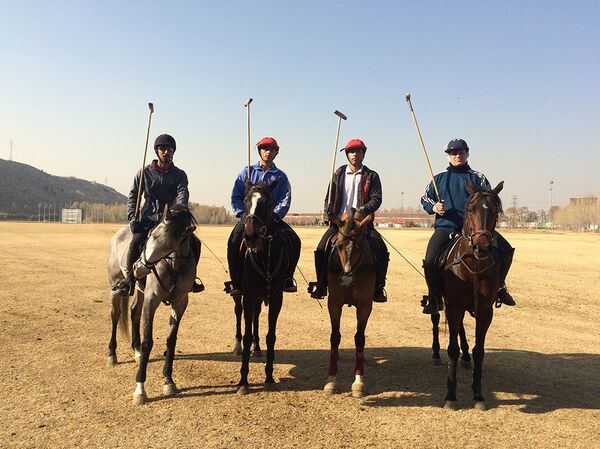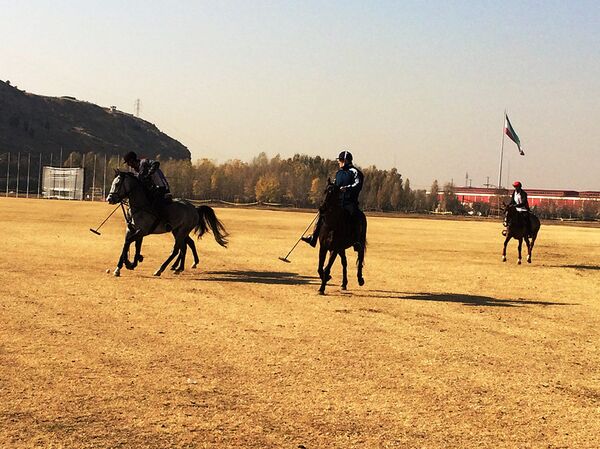Chovgan, an Iranian version of modern sport polo, was invented in ancient Persia as a team game, Yashar Bigham, a representative of Iran's Equestrian Federation, said.
"Taking into account the documents available to specialists, we can say with certainty that chovgan is one of the oldest sporting games. It was first mentioned in the "Book of the Acts of Ardashir Papakan, the founder of the Sassanid dynasty," Bigham told Sputnik.
The official noted that information about chovgan can also be found in various manuscripts, hymns and literature, but none of them contain the exact rules of the game.
"For example, Shahnameh [a Persian poem containing the history of Iran from ancient times to the time of the Islamic conquest] says that the number of game players should be 14, while according to Qabusnamah [another major work in Persian literature, there should be eight of them," Bigham stated.

According to the expert, one thing is, however, 100% clear: the game was born in Iran, and only then did it spread to other countries.
Although a number of other states claim to have invented the game, chovgan was eventually included into UNESCO list as Iran's intangible cultural heritage on December 7, 2017.
The debates about the origin of chovgan were especially intense between Iran and Azerbaijan.
"In Azerbaijan they said that in their culture there is a game called "chovgan," which is played on Karabakh horses and which they wanted to bring to UNESCO, because it needs protection. But they said that they don't lay claim to polo. By the way, this game was eventually recognized as a cultural heritage of Azerbaijan. And UNESCO told us that we can apply for registration of polo as Iran's heritage," Bigham said.

Chovgan is a sporting game which is played on horseback and viewed as a version of the modern polo game. The first game took place around 600 BC in ancient Persia, according to reports.
Each team consists of four riders, who use a special stick to move a small ball across the field. The goal is to score goals against the opposing team. The game is popular in Azerbaijan, Iran, Tajikistan and Uzbekistan.
